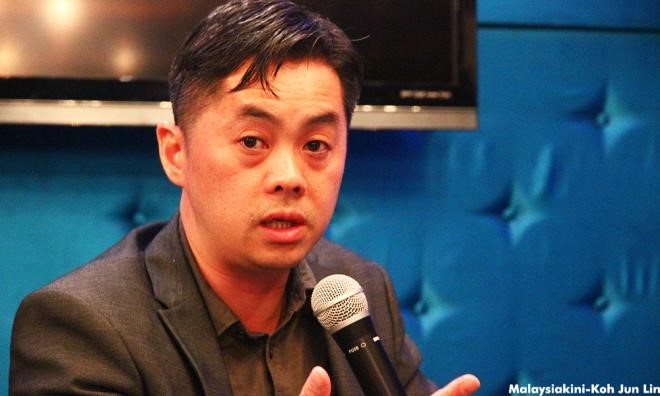By Koh Jun Lin | Malaysiakini

The government’s efforts to improve human rights standards in the country are being stalled by the agencies that are supposed to implement them, said a local rights representative.
ASEAN Intergovernmental Commission on Human Rights (AICHR) Malaysia representative Edmund Bon said since Malaysia’s last Universal Periodic Review (UPR) at the UN Human Rights Council in 2013, Wisma Putra had made recommendations that Malaysia should sign up to more human rights conventions, drop its reservations on the conventions that it has already signed, and improve its human rights standards.
“But then what happens is that when it comes back, the Ministry of Foreign Affairs prepares a paper, lists out the issues and problems, and then there is an implementing agency that it goes to, and it is stuck there.
“Or, they would say you need to refer this to the Attorney-General’s Chambers, but the Attorney-General’s Chambers, as I understand it, they have so much on their plate that they don’t have the capacity to handle this.
“And then nothing moves. If nothing moves, then nothing goes to the cabinet,” he told an informal meeting in Kuala Lumpur hosted by the Foreign Correspondents’ Club of Malaysia (FCCM) last night.
The same also happens with the Malaysian Human Rights Commission’s (Suhakam) recommendations, which has made little progress after the papers are sent to the relevant agencies.
Bon said this is what he learned since he was appointed as Malaysia’s AICHR representative on April 1, where he has been engaging with various agencies to take stock of Malaysia’s position on international human rights treaties.
Disconnect among the agencies
“I find that there is sort of a disconnect (among the agencies), and this is sometimes accidental; it is not by design,” he added.
He said Minister in Prime Minister’s Department Paul Low is looking into these hurdles in hopes of expediting the process.
Malaysia has thus far ratified three out of the nine UN core human rights instruments: those concerning the rights of persons with disabilities, the rights of children, and discrimination against women.
The six that Malaysia has not signed include those that deal with torture, civil and political rights, enforced disappearance, racial discrimination, economic, social, and cultural rights, and the protection of migrant workers.
The UPR process occurs in cycles lasting approximately four years through meetings at the UN Office in Geneva, Switzerland. Malaysia’s human rights record will be up for review again in 2018.
During the last review, where each of the 104 countries present had 75 seconds to grill Malaysian representatives, many had urged Malaysia to sign and ratify the six remaining human rights instruments, and to drop its reservations on the conventions that it has already ratified.
Meanwhile, back in the ASEAN region, Bon conceded that AICHR had been focused on human rights promotion rather than protection, during its past six years of existence.
However, things are beginning to change.
This is in part due to a new line of AICHR representatives who have been appointed, including Bon, as their predecessors’ terms came to its two-term limit.
AICHR representatives are appointed for three-year terms.
‘Give AICHR a chance’
The last meeting in Jakarta in April had been promising, with each country agreeing to undertake at least one project.
Malaysia will be dealing with issues related to freedom of expression this year, and the people’s right to water and sanitation next year.
In particular, Bon said he is tasked with drafting an explanatory note for Article 23 of the ASEAN Human Right Declaration, which pertains to freedom of opinion and expression, which he intends to finish by July.
This would include issues such as the enabling environments for media practitioners to work in, regulations, censorship, and the protection of media practitioners and sources.
“We will issue a general comment (on Article 23), and if (all) ten AICHR representatives accept it, that is the standard for ASEAN,” he said.
He explained that once ASEAN members have agreed to a set of standards, then the floor is open to start talking about human rights protection.
However if even one country objects, then the draft would not be accepted. This, he said, had contributed to AICHR being paralysed over the past six years.
Nevertheless, Bon urged for patience and to give AICHR a chance.
“When the inter-American human rights system started, when the European system started, when the African system started; they started out as commissions.
“It started way back, a long time ago, just giving comments. Then they moved on to monitoring, then moved on to interventions, and then moved on to being a court.
“So in the ASEAN context especially with its consensus-based way of doing things, we must give it a chance,” he said.



